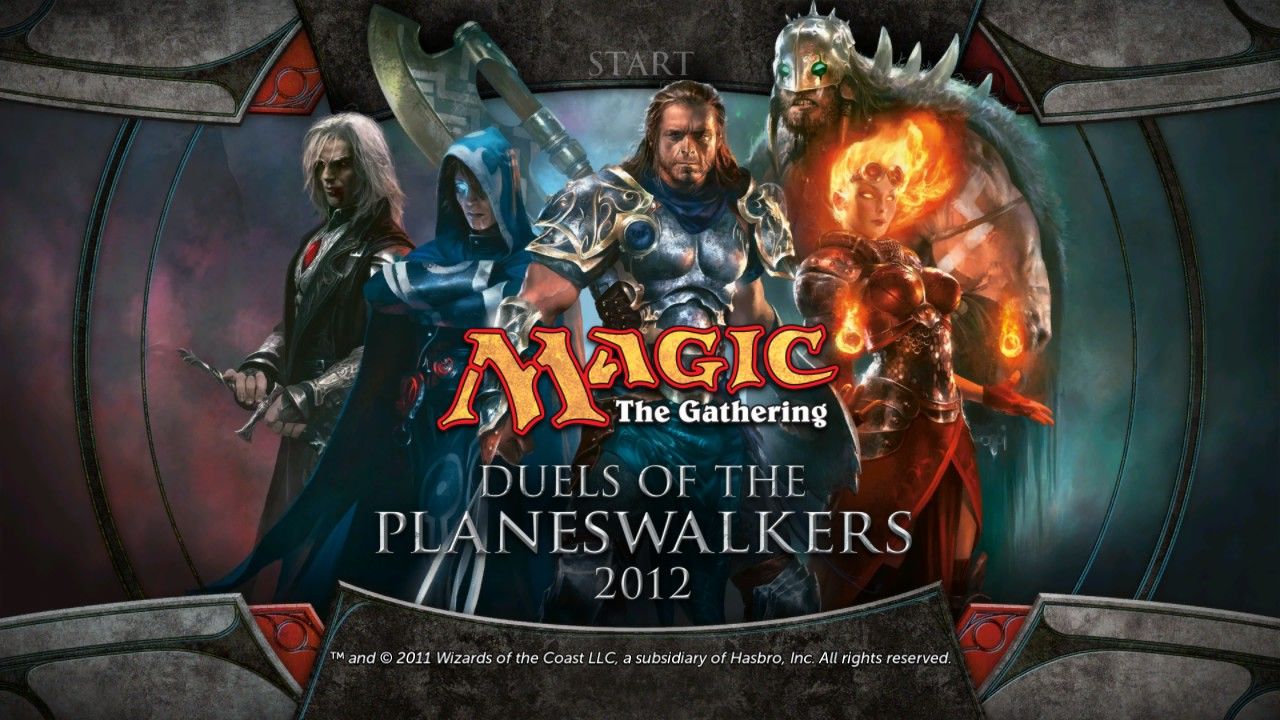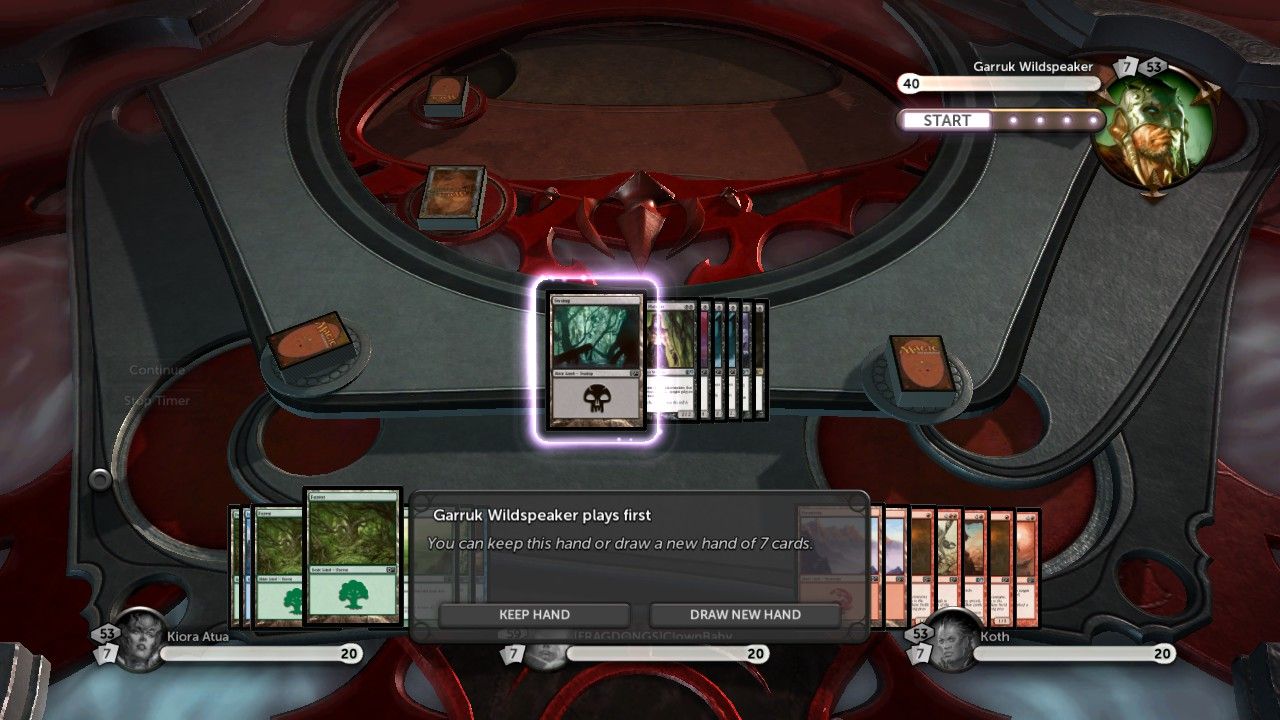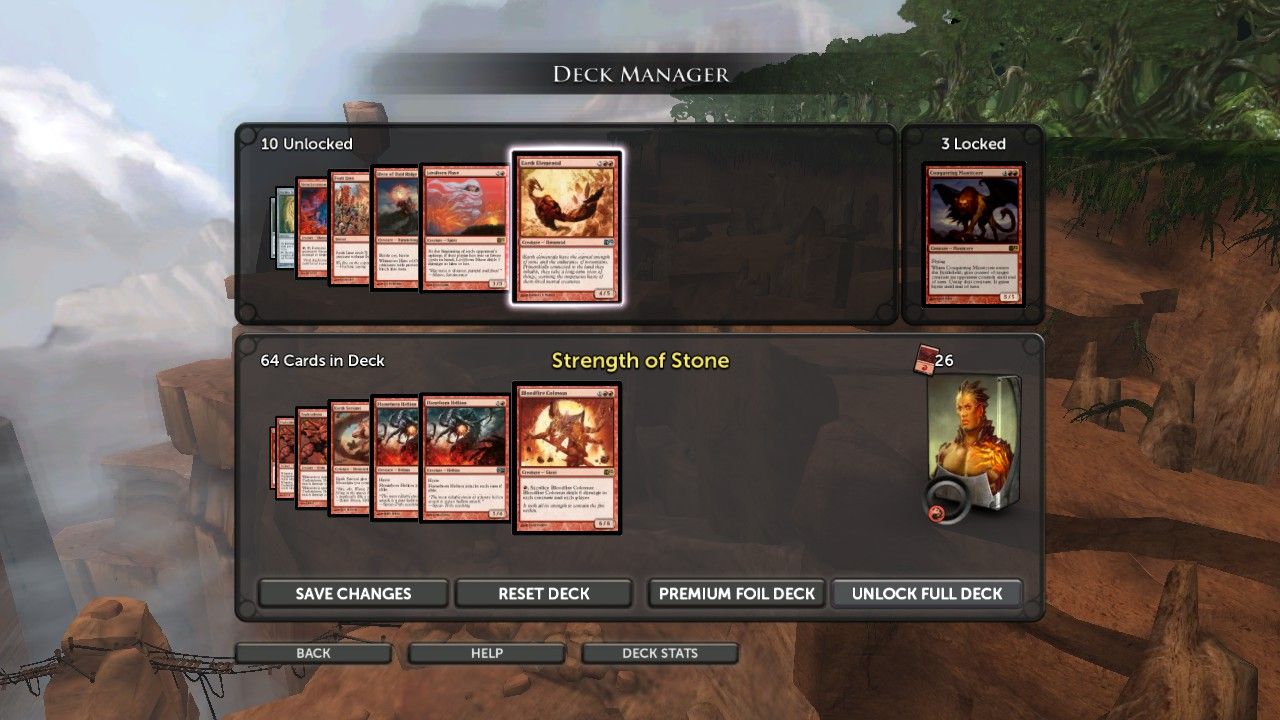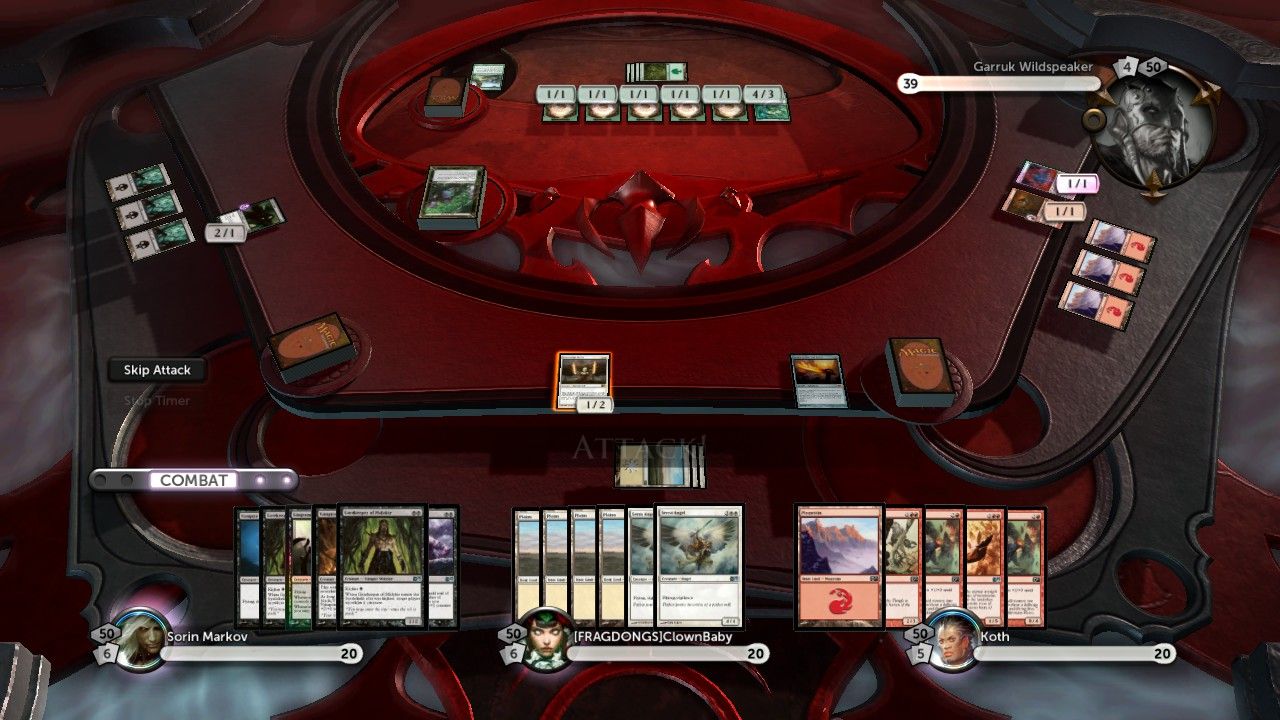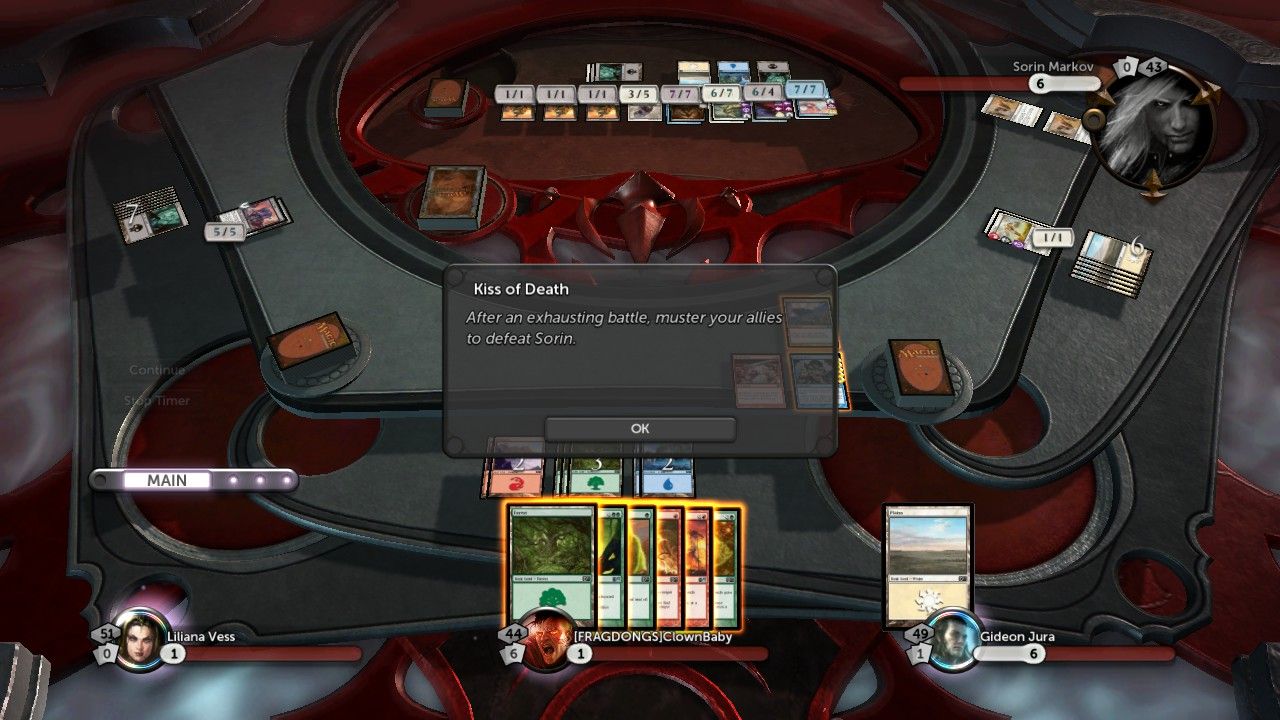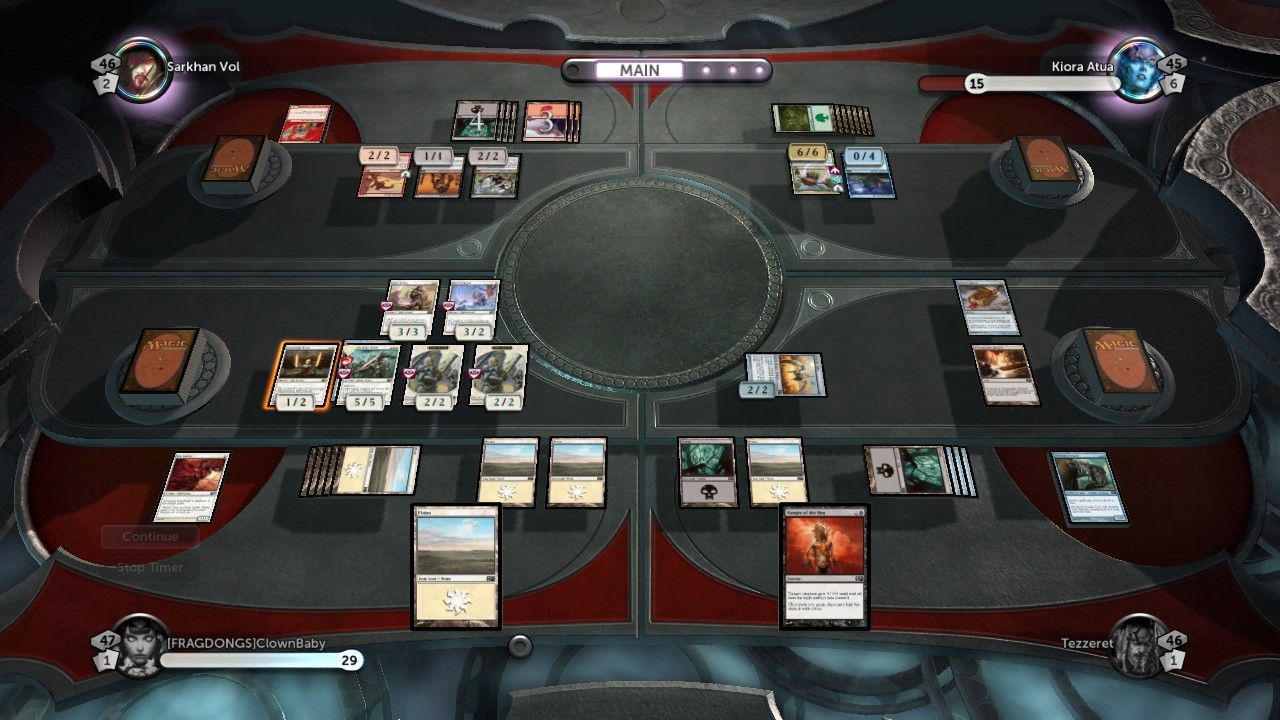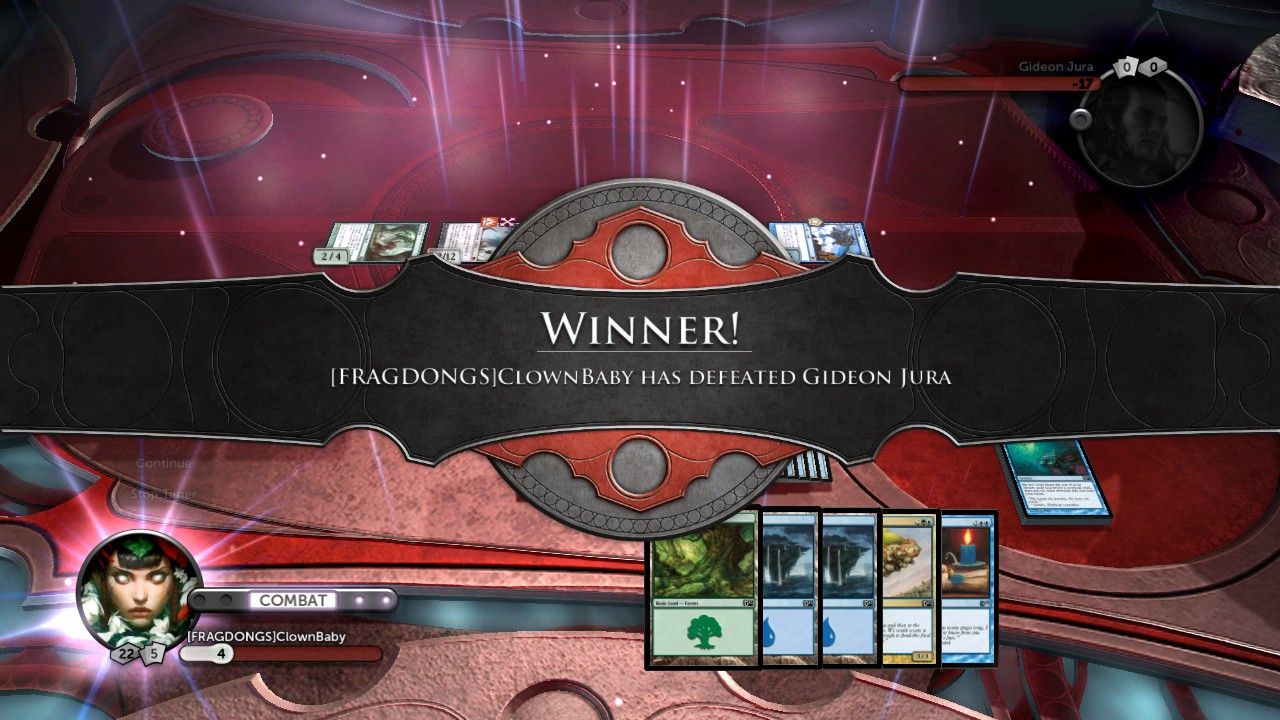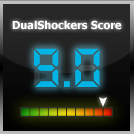Growing up in a middle class Midwestern household in the 90s, Magic the Gathering played a big role in my life. I would walk to the local hobby shop each week and spend a little bit of my allowance buying booster packs and pogs. Occasionally I would buy a yo-yo and try to learn some cool tricks, but give up within a few weeks. I never gave up on Magic though, until I grew up and was forced to have responsibilities.
I don’t know at what point it happened, but it did. I no longer had time to play Magic with my friends or head to the hobby shop, I was too busy working. But the second I booted up Magic the Gathering: Duels of the Planeswalkers 2012 for the first time, all the memories came rushing back.
Magic the Gathering pretty much made the collectible card game a mainstay all on its own, and the key to that success prevails even in the electronic versions of the game. The game is very easy to get into and difficult to master. If you’ve never touched the game before or if you’ve been playing for 20 years you’ll have no trouble figuring things out.
You start the game with a single deck to play with, and one opponent to fight in the single player campaign. Each of the 10 Planeswalkers you face will unlock another deck for you to use, and more enemies to fight against. Each deck is initially locked to the cards it already has, but each victory you win will unlock an additional card for the deck you’re using.
Each deck has 16 unlockable cards, though it won’t take 16 victories to unlock all of the cards as some of them feature two or more of a certain card, and you unlock all the duplicates at once. Once you have more cards available, you’ll want to start using the deck editor to trim each one to the cards you want.
Some restrictions come into play at this point. Each deck is limited to just the initial cards it has and the 16 unlockable cards. You can’t create your own deck from your full pool of cards. What you can do is add or remove any card you don’t like from the selection you have, provided you have at least 60 cards (including lands). Lands are adjusted automatically depending on your decks needs and this can’t be controlled at all.
The decks have a nice variety to them though. There’s at least on single color deck for each mana color with some two color options, and even one that consists of three. Some of them might have more difficulty against a specific deck than others, but it doesn’t feel like there’s one single deck that truly shines over all the others. The biggest key to winning is of course how well you’ve constructed your deck, the opponent you’re facing, and most importantly; luck.
As you progress through the first campaign, you’ll unlock two others titled “Archenemy” and “Revenge”, which feature the same planeswalkers in a slightly different order and Archenemy having a different boss. “Revenge” is the same as the original campaign, but each of the planeswalkers has a stronger deck featuring all of their unlockable cards (though still edited down to 60 at all times). Archenemy is where things get interesting.
Instead of the standard one on one battles of the first and last campaign, Archenemy switches it up a bit by having a team of three (including you) against one AI opponent. Your enemy has double health while your team is at the standard 20. One more big difference comes into play, again in favor of the solo fighter with what are called Scheme cards.
Schemes are played at the beginning of the Archenemy’s turn from their own deck and play a special effect that impacts everybody on your team. Schemes will see the Archenemy gaining a powerful token creature, draining health from each enemy, drawing extra cards, and all manner of effects. These can turn the tide of a battle in their favor quickly, and while it’s annoying to see them get a huge boost out of nowhere, it helps balance the fight for the lone fighter.
I found myself having a lot of fun playing these fights. My only complaint with them is that the player can’t take on the Archenemy role. It would be nice to be able to do this either online or just in private matches against the computer, but we’re left without for now.
Peppered throughout the single player campaign are some challenges, which pit you in a given situation where you must figure a way to victory with the cards on the board and a single turn. These are all ranked from easy to hard, and at first they seem a little too easy if you're familiar with the core mechanics of the game, but they ramp up in difficulty quite nicely. Some of the later ones will leave you scratching your head while you try to figure out which card will give you that killing blow.
These serve nicely to familiarize you with some of the trickier mechanics of the game, and are a nice change of pace from the straight up battles found otherwise. The only problem with these challenges is that there are only such a small amount of them available.
The intelligence of the AI is just as important in this game as it is in any other, perhaps even a little more so. In my experience, the computer seemed to act pretty realistically to what I think a human player would do in their given situation. They’ll sacrifice a creature to block what would otherwise be a killing blow, and will wait until blockers have been declared to use a spell like “Giant Growth” rather than just tossing it out at random.
It never felt like the computer was cheating with the draws on their deck, as they’ll get just as lucky or unlucky as the player will at any given moment. Some matches saw the computer not pulling any land or playable creatures for a few painful turns, while some saw them basically getting an instant win on turn three. The thing is, these same things have happened to me just as often. Luck of the draw is in full effect here, for everybody involved.
When you’re done messing around with computer controlled opponents, you can take the game online in three different modes; Free for all, Archenemy, or Two Headed Giant. Free for All is just what it says with two to four players with every player for themselves. Archenemy is exactly the same as in single player, with up to three human players up against the AI opponent and Two Headed Giant pits four players against each other in teams of two, with each team sharing a life bar of 30.
Each of these modes is available offline should you choose, and when you do so you can pick what deck each of your allies or enemies use. When you’re playing Archenemy in the campaign you can do this as well which is nice. The only downside to this option is that there’s no “random” option which while not a true negative it would be nice to have.
The lack of full customization in both online and offline modes is the only downside I really see to the game. Full deck customization would be nice, as would a few more options in custom games but it’s not a deal breaker.
There is plenty of content here for any fan of Magic the Gathering, from the casual to the pro. While you’ll quickly unlock all of the decks, getting all of the cards in each deck will take a little longer and even when you do there are plenty of ways to set them up to make each one drastically different than it’s core library.
With a full robust online offering featuring co-operative and competitive modes and plenty of unlockable content, Magic 2012 has a lot of life in its small asking price. For the cost of a few booster packs you can get plenty of fun that should keep you entertained for a long time to come.
After spending the past week playing this game, I spent some time digging around in my basement and finally found some of my old Magic cards. I think I’m gonna construct a deck and hit up a local Friday Night Magic event at some point. The game provides links to where you can find this information for yourself, and it’s nice to see the digital offering supporting the paper game as well. Consider me hooked again Wizards.
Title: Magic the Gathering: Duels of the Planeswalkers 2012
Platform Reviewed: PC
Developer: Stainless Games
Publisher: Wizards of the Coast
Release Date: June 15, 2011
MSRP: $10 / 800 Microsoft Points
Review Copy Info: A review code of this title was provided to DualShockers, Inc. by the publisher for the purpose of this review.

